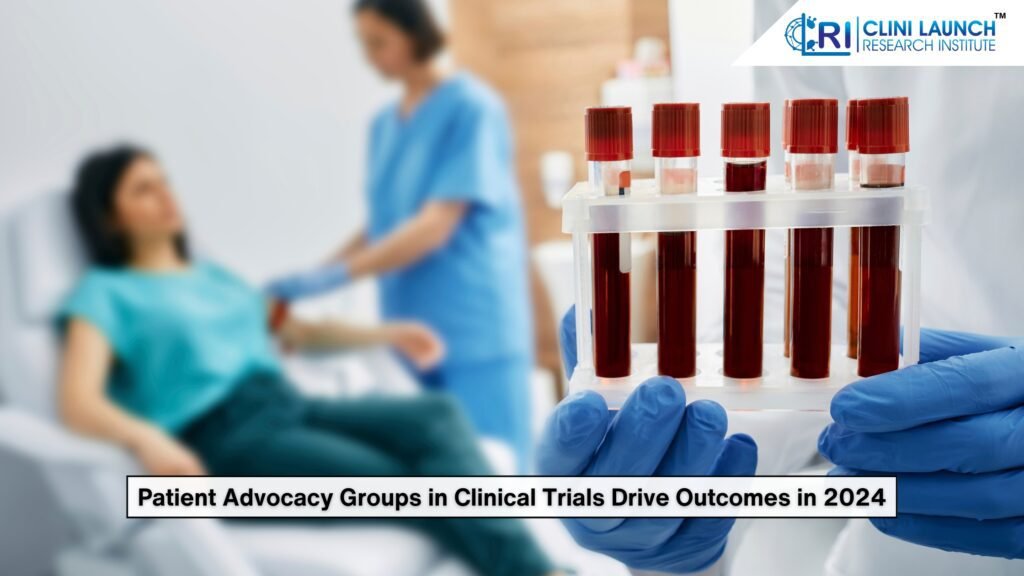Clinical trials are the foundation of medical innovation, yet they frequently encounter considerable challenges. Patient advocacy groups in clinical trials, its recruitment, retention, and trust are ongoing concerns. Patient advocacy and partnerships are also increasingly being recognised as key factors in driving innovation in healthcare. These organizations play a pivotal role in empowering patients to participate actively in their healthcare journey.
Understanding the importance of patient advocacy in trials will provide one with the expertise to promote significant change in clinical research. CliniLaunch – a pioneer in healthcare upskilling, provides specialized courses to help individuals embrace the power of patient advocacy and contribute to a healthier future.
In this blog, let’s dive into the field of patient advocacy and look at how it may transform the face of medical research.
Bridging the gap between patients and clinical research

Did you know? As many as 20% of clinical trials fail due to insufficient enrollment.
Patient advocacy groups in clinical trials, while necessary for medical advances, can encounter considerable challenges. The key problem is effectively involving patients throughout the study process. This gap between patients and researchers can result in a variety of problems, including poor enrolment rates, high dropout rates, and restricted generalizability of study findings.
The importance of patient advocacy in trials is evident in the far-reaching implications of the absence of patient participation. Patients may be unwilling to participate because they perceive a lack of openness, are concerned about potential hazards, or feel disengaged. As a result, studies frequently enrol a small and homogeneous patient sample, reducing the generalizability of study findings. Furthermore, a lack of patient involvement might result in therapies that do not meet real-world patient requirements and experiences.
A study published in the Journal of Clinical Oncology found a correlation between patient participation and trial efficacy. The study discovered that trials with higher levels of patient engagement had significantly higher enrolment rates and improved retention. These findings underline the importance of including patients as active participants in the study process.
CliniLaunch recognizes the critical need to bridge this gap. Our specialized upskilling courses empower individuals to become effective patient advocates, equipping them with the knowledge and skills to drive meaningful change in clinical research. By actively involving patients in the research process, the impact of advocacy organizations on clinical trials can significantly lead to success of clinical trials.
Check out what courses we have on offer related to interest and requirements by clicking here.
Patient advocacy groups in clinical trials – Fostering collaboration and improving outcomes

Patient advocacy groups in clinical trials offer a viable strategy for addressing the problems of medical research. These organizations facilitate collaboration among patients, healthcare practitioners, and researchers, resulting in a synergistic environment that speeds medication discovery and improves patient outcomes.
The role of patient groups in medical research is very instrumental and much more than just a supportive role. They actively shape the research agenda and ensure that studies reflect patient-centred goals. This collaborative approach increases the relevance and effect of clinical studies.
For example, the Crohn’s and Colitis Foundation has played an important role in sponsoring research and fighting for individuals suffering from inflammatory bowel disease. Their efforts have resulted in substantial advances in treatment choices and higher quality of life for those affected.
Furthermore, patient advocacy groups have a thorough awareness of patients’ needs and experiences. This knowledge is extremely useful in developing patient-centred clinical trials, increasing enrolment, and boosting retention rates. By incorporating patients in the study process from the start, advocacy organizations assist in establishing trust and a sense of ownership among participants.
Benefits of patient advocacy groups in clinical trials
Patient advocacy groups in clinical trials are instrumental in improving the efficiency and impact of clinical trials actively incorporating patients in the research process, which helps improve patient advocacy in studies.
- Improved patient recruitment and retention
Patient advocacy groups in clinical trials are crucial in increasing patient knowledge and participation in clinical trials. By developing confidence and addressing patient issues, these groups have a significant effect on patient recruitment and retention rates
- Enhanced trial design and execution
Patient advocacy groups provide crucial insights into the patient’s experience, which is necessary for performing good clinical studies. By including patient perspectives, researchers may create studies that are more relevant, practical, and patient-centred.
- Accelerated drug development
The role of patient groups in medical research is undeniable. Patient advocacy groups can accelerate medicine development by supporting efficient patient recruitment, improving data quality, and boosting stakeholder participation.
- Better patient outcomes
Patient advocacy groups play an important role in ensuring that patient needs and goals are central to the research agenda. By advocating for patient-centred research, these groups contribute to the development of medications that benefit patients directly.
CliniLaunch recognizes the tremendous importance of patient advocacy in trials and provides specialized training to educate people with the skills needed to create positive change. We seek to create a collaborative environment that accelerates medical discoveries and improves patient lives by educating healthcare professionals and individuals.
Shaping the future of clinical trials: The role of patient advocacy groups

The collaboration between patient advocacy groups in clinical trials is poised for major expansion and development. As the healthcare environment changes, these organisations will work more on novel methods to clinical trial design, patient involvement, and data utilization.
A future in which patient advocacy groups are included in the medication development process offers great promise. These organizations may increase their effect on clinical trials by utilising technology and data analytics. For example, patient-reported outcome (PRO) measurements can be improved to better capture patient experiences, resulting in more relevant and patient-centred research.
To fully realize the potential of patient advocacy groups, ongoing investment in education, training, and support is required. By providing advocates with the appropriate skills and expertise, we can foster a healthcare environment in which patient views are heard and research is genuinely patient-centred.
Patient advocacy groups in clinical trials are the future of healthcare. By collaborating closely with industry, we can accelerate drug development, improve patient outcomes, and shape a healthier future.
Conclusion
Patient advocacy groups are crucial in transforming the landscape of clinical research. By bridging the gap between patients and researchers, these organizations play a vital role in enhancing patient engagement, improving trial outcomes, and accelerating drug development. As the healthcare landscape continues to evolve, the importance of patient advocacy in clinical trials will only grow. By investing in education, training, and support for patient advocates, we can create a future where research is truly patient-centered and benefits individuals worldwide.






Great blog here! Also your website loads up fast! What web host are you using? Can I get your affiliate link to your host? I wish my site loaded up as fast as yours lol
Good post! We will be linking to this particularly great post on our site. Keep up the great writing
Packachange very informative articles or reviews at this time.
Thanks for sharing. I read many of your blog posts, cool, your blog is very good.
Amazing..!! We Wait Your New Post..!! Good Luck..!!